Hey y’all!
So as I mentioned last week, I’m in Colombia for the month and I’ve been eating like the rent is due, chile. I’ve been trying EVERYTHING and unfortunately for my waistline, Colombians love meat, cheese, and bread and then frying all of them and smashing them together.
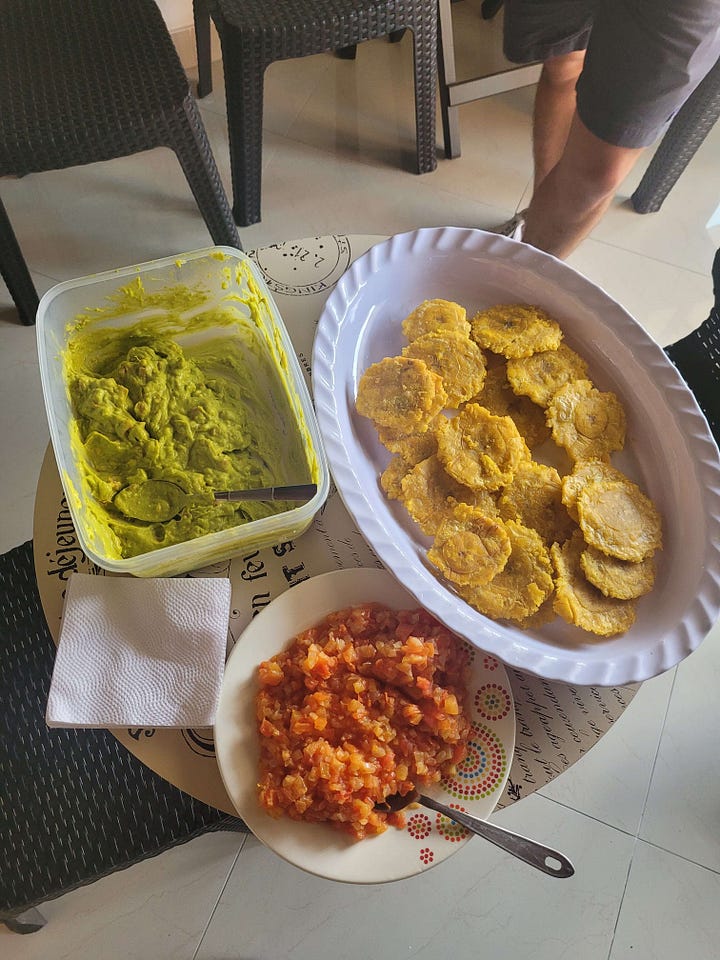
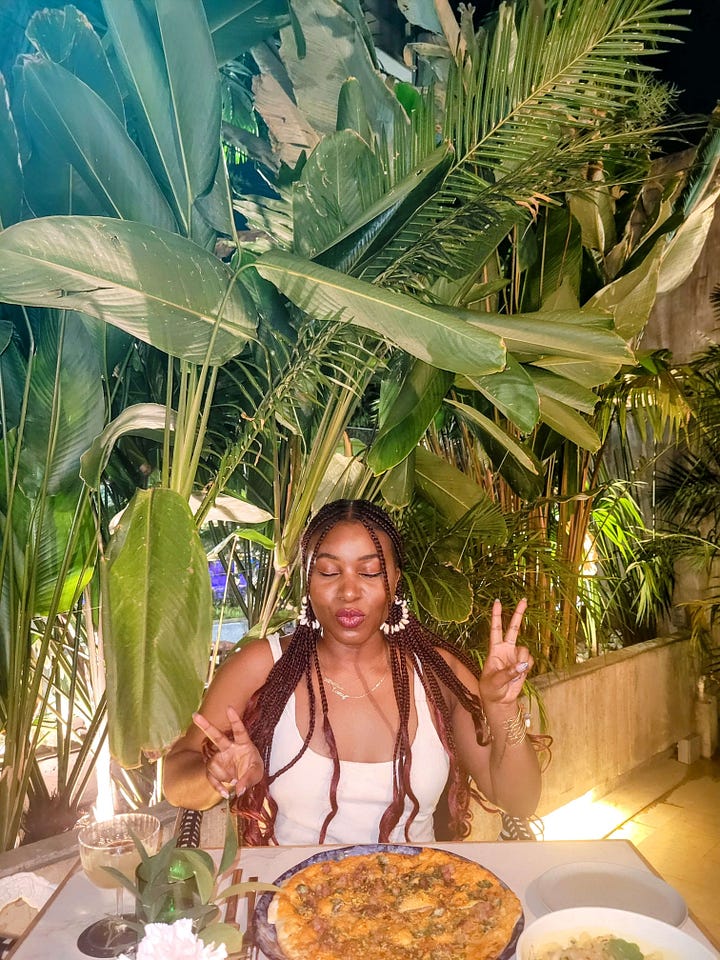
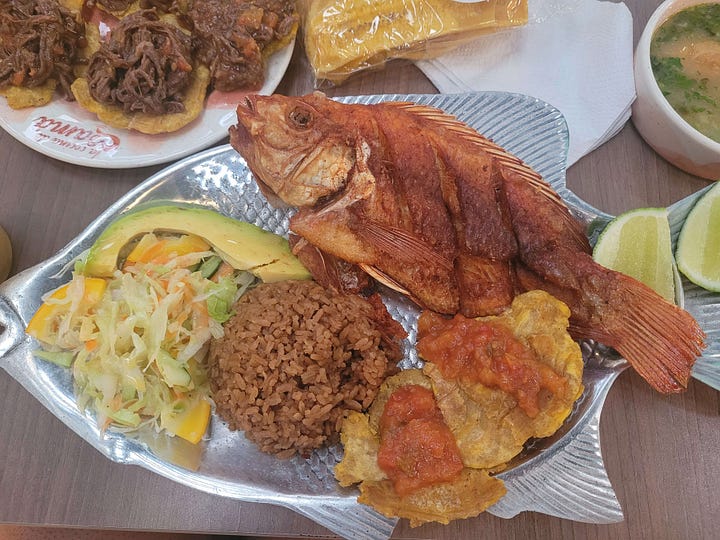
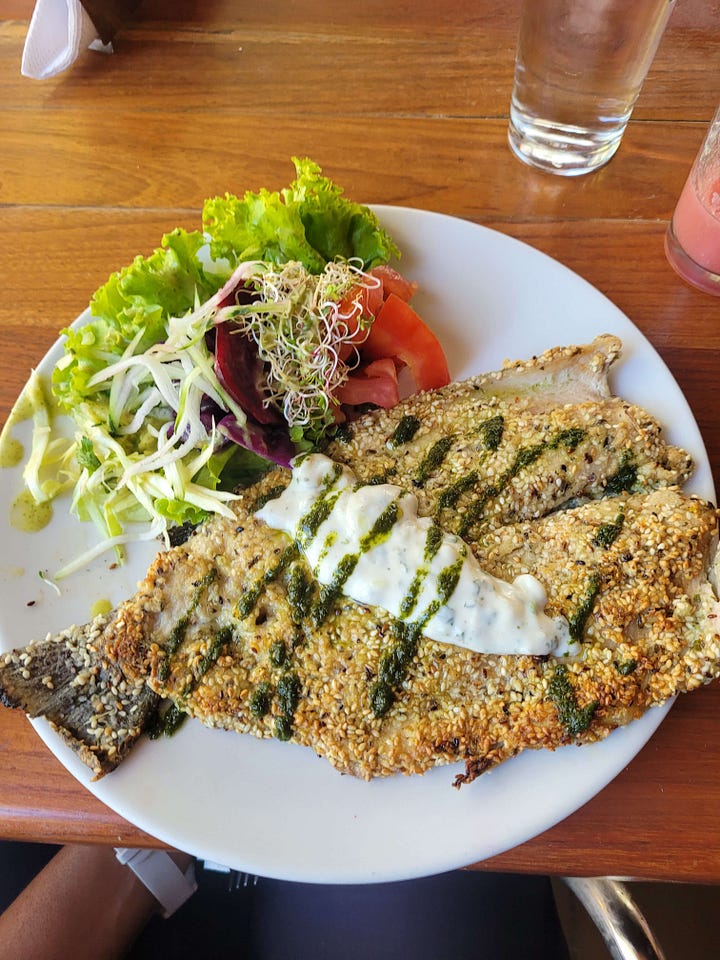
Fortunately, I’ve been equally as active out here. I went on a bike tour (which is my favorite way to explore a new city and I highly recommend it if you’re able), and I finally found the local Black people! If you travel, you know the feeling of relief you feel when you find your people abroad and in their natural habitat. Lo and behold, once we cruised out of the hipster corridors of Laureles and the touristy aughts of Poblado, I found my people packed in downtown.
I saw Black women cruising by on motorcycles, Black men crowded around tiny tables at the plaza shootin’ the shit in Spanish, and beautiful Black couples strolling through the market. It was glorious, albeit extremely crowded and I couldn’t pull my phone out, but I’m definitely happy to report that the Passport Bros aren’t the main Black people holding it down in the city.

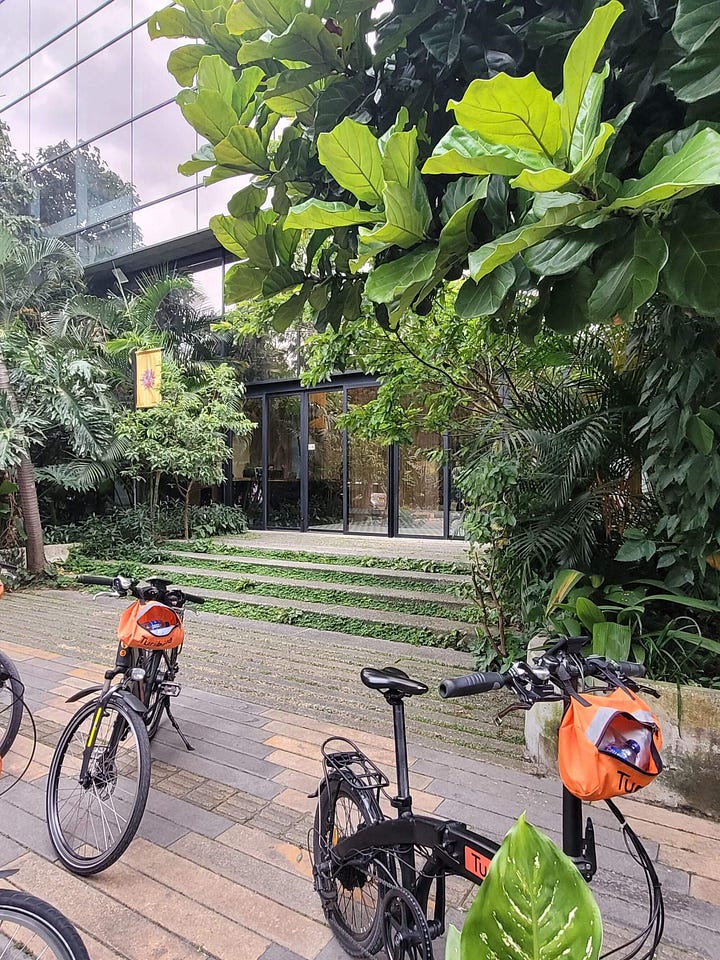
This Week’s Story
With yesterday being Mother’s Day (sending love to all the moms out there and all the people who identify with this above graphic), this week, writer Ashley Nash dives into the blessing and, sometimes, the burden of being your mother’s daughter. Moms are human too; have their own feelings and had a life before they gave birth to us. However, it can be a delicate balance trying to navigate her womanhood as well as yours.
Take care,
Anayo Awuzie
EIC of Carefree Mag
How To Be Your Mother's Daughter While Loving Yourself
by Ashley Nash
I can think of one group of people that can impact our lives like no other: our mothers. The relationships that we build with our mothers have the power to not only frame our identities but affect how we interact with people for the rest of our lives. While this is just my guesstimate, A Psychosomatic Medicine and Psychotherapy study confirmed that those who have positive, loving relationships with their parents have more positive and secure relationships in their adulthood. So, what happens if we never knew our mothers, if they weren’t active in our lives, or if our relationships with them have been nothing short of emotional rollercoasters?
When it comes to me and my mom, we’ve had many conversations about how to love and respect one another. We’ve laughed, cried, and taken trips down memory lane in an effort to better understand one another.
For me, understanding my mom started with acknowledging that she was a mother before she had children of her own. She knew how to clean a house, cook dinner, help her siblings with homework, and put them to bed before she was even a pre-teen. This is how she helped my grandmother. She was also a great student whose love for helping people led her to pursue nursing school, score among the highest percentile in the country, and make a difference in the lives of her patients.
So, when it came time to add on to her family (of herself and my sister), she was more than ready because she’d already had over 20 years of experience.
Ask anyone that’s met my mom and they’ll tell you she gives the best hugs. The love she has for people literally radiates from her body and people get to experience that every time that they’re around her. I say all of this to say that I felt very loved as a kid. One of her favorite stories to tell is about when she took me to a doctor’s appointment when I was a baby. I had to get some sort of shot and the doctor asked her if she could comfort me as he prepared to insert the needle. So, as I laid on the platform, she brought her face to mine and reassured me that everything would be fine. The doctor was in total shock—he’d given me the shot and I didn’t even make a sound. He said that he didn’t see a connection like ours often and proceeded to congratulate my mother.
That connection would carry on throughout my adolescence. Both of my parents did so much for my siblings and me that we weren’t always aware of when we were actually struggling. While the struggles were only temporary, my parents now describe them as hard times. Now, as an adult, I can look back on those times and identify the moments when tensions were high. Seeing as I don’t have any children or own any property,
I can only imagine what it’s like to work, raise a family AND pay bills. Persevering is not new to us: my mom has always made lemonade out of lemons even when those lemons came at every aspect of her wellbeing. She’s the strongest and most loving person I know which made it even more difficult for me to tell her that I didn’t feel heard in our relationship.
Three years ago, my parents welcomed me back home while I was experiencing a transitional period in my career. I was so grateful to have the option of returning home that I didn’t even consider the fine print. Moving back in with your parents, no matter how necessary, is difficult. You’ve been living under your own roof, by your own rules and all of a sudden, most of that is out of the window.
However, after finding a new job and reconnecting with some close friends, I was feeling like myself again. I had a schedule and some independence which left time for pre-planned hangouts with my mom although she’s always preferred having unlimited access to my time. Time and space have always been a sore spot for us, but when I decided to speak up, I also started to wonder, “How can I be my mother’s daughter while loving myself?”
Learning to love yourself is hard work. It requires mindfulness, patience, and forgiveness among other things which are essential to healing. Sometimes we’re fortunate enough, as daughters, to be equipped with these skills by our mothers and sometimes we have to learn them on our own.
Ironically, it’s only within the last few years that I started to take a long hard look at the areas of my life where I need to heal. Almost all of these areas are characterized by moments when I wasn’t living in my truth and not because I was incapable, but because I was afraid. I was afraid to disappoint people and I was afraid to ask for what I needed. Identifying the areas of my life where I’m in need of healing is only the first step. And, I know that being mindful, patient, and forgiving of my mistakes will be lifelong efforts.
I do, however, plan to exercise these tools in my daily interactions moving forward. When my mom and I have disagreements, which we will because we’re human, I plan to be mindful of what’s actually fueling the aggression. I plan to be patient with myself and my feelings while also being patient with my mom and her expectations.
I’ll forgive her and myself: not for being vocal or ruffling the feathers of someone I love, but for feeling guilty about it. This is how I plan to show up for myself in my relationship with my mom, by being active in applying these three principles. Now, I’m in no way negating how necessary it will be for my mom to show up openly and lovingly in the future of our mother-daughter journey. I just know that I can’t do the work for her.
Regardless of where we are now, in our relationship, I am hopeful that growth and transparency become our shared goals. I am hopeful that if daughters possess the mother-given and/or self-taught strength of leading by example, then mothers will be proud and humble enough to follow suit.
If women can build families, fulfill roles throughout their careers, and support their partners, they can definitely be better mothers to their daughters. It comes down to making it a priority. It depends upon acknowledging the pain that was caused, the time it’ll take to heal it, and the work that needs to be done. Then, and only then, will women be their mother’s daughters while loving themselves.
Enjoyed this week's storyletter? Tap the heart & share it! 😍
Share on Twitter | Share on Facebook | Share via email | View past stories







